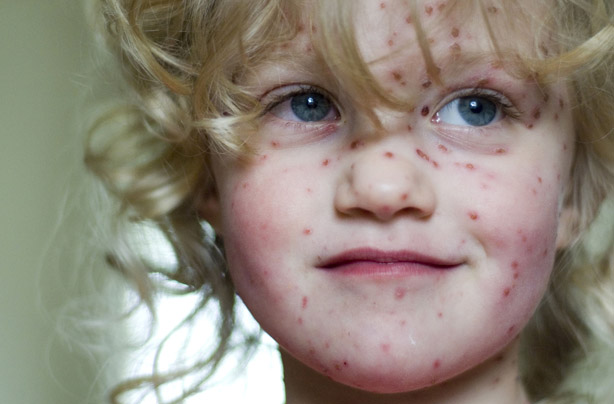Chicken pox parties: Should you accept an invitation?
Have you had any experience of chicken pox parties?


Parenting advice, hot topics, best buys and family finance tips delivered straight to your inbox.
You are now subscribed
Your newsletter sign-up was successful
Chicken pox parties, once in vogue in the 1970s and 1980s, are seeing a resurgence, with some convinced they're a good idea.
So are they a good way to get the dreaded chicken pox over and done with quickly, or do they put your child at risk? To get a reliable answer we spoke to Dr Alexandra Phelan, an NHS GP member of the Pharmacy2U Online Doctor service. We asked her whether chicken pox parties are really a good idea or not. Here's what she had to say...
While complications from chicken pox are rare in healthy children, the condition does occasionally cause serious problems, especially in 'at-risk' groups.
Should youngsters be deliberately exposed to chicken pox in order to give them lifelong immunisation?
It's a question that polarises opinion among parents and the medical profession alike.
At a chicken pox party, youngsters are encouraged to mingle with others who have chicken pox in the belief that as it's a mild and common childhood illness that most youngsters catch at some point.
Chicken pox, while unpleasant, is often milder when experienced in childhood than if contracted as an adult and once caught, immunity to chicken pox is lifelong. The rationale for the parties is that it's therefore likely to be better for children to get chicken pox at an early age.
Parenting advice, hot topics, best buys and family finance tips delivered straight to your inbox.

Some groups of parents may arrange chicken pox parties so their children have the illness at the same time. Others feel it's irresponsible for parents to deliberately infect their children with what can be a distressing illness, or have their children deliberately infect others.
While the NHS doesn't publish an official view on chicken pox parties, its general advice is to 'prevent spreading the infection' by keeping children 'off nursery or school until all spots have crusted over'.
Public Health England advises keeping infected children away from public areas, recommends that parents inform their school or nursery and keep them at home for five days.
As a GP, my experience is that chicken pox is a bit of a lottery and that parents cannot ever really know how their child will react to the illness until they catch it.
For some children, it can be nothing more than a mild irritation. But for others it's quite distressing, resulting in a body covered in intensely itchy blisters, a high temperature and other flu-like symptoms that can make a small child feel quite poorly.
However, most healthy children recover from chicken pox with no lasting ill-effects simply by resting, just as with a cold or the flu. There are treatments available from a pharmacist without a prescription to ease the symptoms of chicken pox, including spray gels that help to relieve itching.
The most common complication is when the blisters become infected with bacteria, and the surrounding skin becomes red and sore. Your GP may prescribe a course of antibiotics.
Very rarely, chicken pox can lead to more serious complications involving a child's nervous system - the brain and spinal cord. Signs of complications setting-in are drowsiness and confusion, seizures, vomiting, a stiff neck, headaches or problems with walking, balance or speech. If your child develops any of these symptoms after having chicken pox, seek medical advice quickly.
I would advise parents considering whether or not to take their child to a chicken pox party to bear in mind that if he/she catches it, there's a chance that other members of the family will get it too, if they've not had it before - and in adults, chickenpox can be more serious.
Adults are more likely to need hospital treatment, with up to 14 per cent of adults with chickenpox developing secondary lung problems such as pneumonia.
Others most at risk of developing complications include babies under four weeks old, anyone with a weakened immune system and pregnant women.
To find out more about chickenpox, speak to your GP or visit nhs.uk

Jessica Dady is Food Editor at GoodtoKnow and has over 12 years of experience as a digital editor, specialising in all things food, recipes, and SEO. From the must-buy seasonal food hampers and advent calendars for Christmas to the family-friendly air fryers that’ll make dinner time a breeze, Jessica loves trying and testing various food products to find the best of the best for the busy parents among us. Over the years of working with GoodtoKnow, Jessica has had the privilege of working alongside Future’s Test Kitchen to create exclusive videos - as well as writing, testing, and shooting her own recipes. When she’s not embracing the great outdoors with her family at the weekends, Jessica enjoys baking up a storm in the kitchen with her favourite bakes being chocolate chip cookies, cupcakes, and a tray of gooey chocolate brownies.